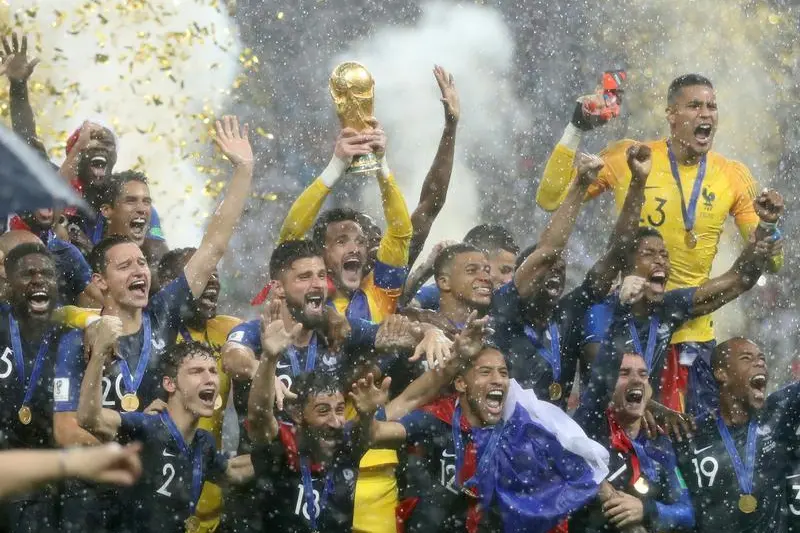PHOTO
LONDON (Reuters Breakingviews) - France’s World Cup victory is a partial vindication of soccer’s transfer market. The players who triumphed in Sunday’s final had the highest value of any team in the global tournament. Though other stars fell short, and harder-to-quantify factors played a big role, the contest suggests that prices offer some guide to success.
The players in the French World Cup squad are worth a combined 917 million pounds, according to Breakingviews calculations based on data from Transfermarkt. But if there were a simple relationship between transfer value and performance on the pitch, then France’s opponents in the final would have been Spain, whose squad is priced at 909 million pounds, rather than Croatia, whose players are worth a third of that sum. German players, who cost a combined 868 million pounds, and Argentina, whose squad is valued at 622 million pounds, also succumbed to less expensive opponents.
Players who perform well at club level can fall short when representing the national team. Conversely, the World Cup gives previously underappreciated talent an opportunity to shine. Croatian midfielder Luka Modric, who was voted the tournament’s best player, is worth just 22.5 million pounds according to Transfermarkt and does not feature among the world’s 250 most expensive players. Team spirit, refereeing decisions and sheer luck also played their part: Croatia won two penalty shoot-outs on their way to the final.
Nevertheless, it would be a mistake to dismiss price signals entirely. Three of the world’s 20 most expensive players - Kylian Mbappé, Antoine Griezmann and Paul Pogba - played for France. The two other countries that could draw on a similar array of high-priced talent were Belgium and England, which both reached the semi-finals. By contrast, teams that depended heavily on one star player, like Argentina’s Lionel Messi or Cristiano Ronaldo of Portugal, did less well.
This reflects the growing sophistication of the market for top soccer talent. Clubs track players from a young age, measuring statistics like passing accuracy and successful tackles. The growth in television revenue on offer from Europe’s Champions League has intensified the competition for the best players. Five of the last six World Cups have been won by European countries. Though sporting tournaments will always throw up surprises, in a hyper-financial sport like soccer, money has a tendency to influence the results.
On Twitter https://twitter.com/peter_tl
CONTEXT NEWS
- France won the World Cup 2018 on July 15, beating Croatia 4-2 in the final.
(The authors is a Reuters Breakingviews columnists. The opinions expressed are hid own.)
(Editing by Swaha Pattanaik and Bob Cervi) ((peter.thal.larsen@thomsonreuters.com; Reuters Messaging: peter.thal.larsen.thomsonreuters.com@reuters.net))





















